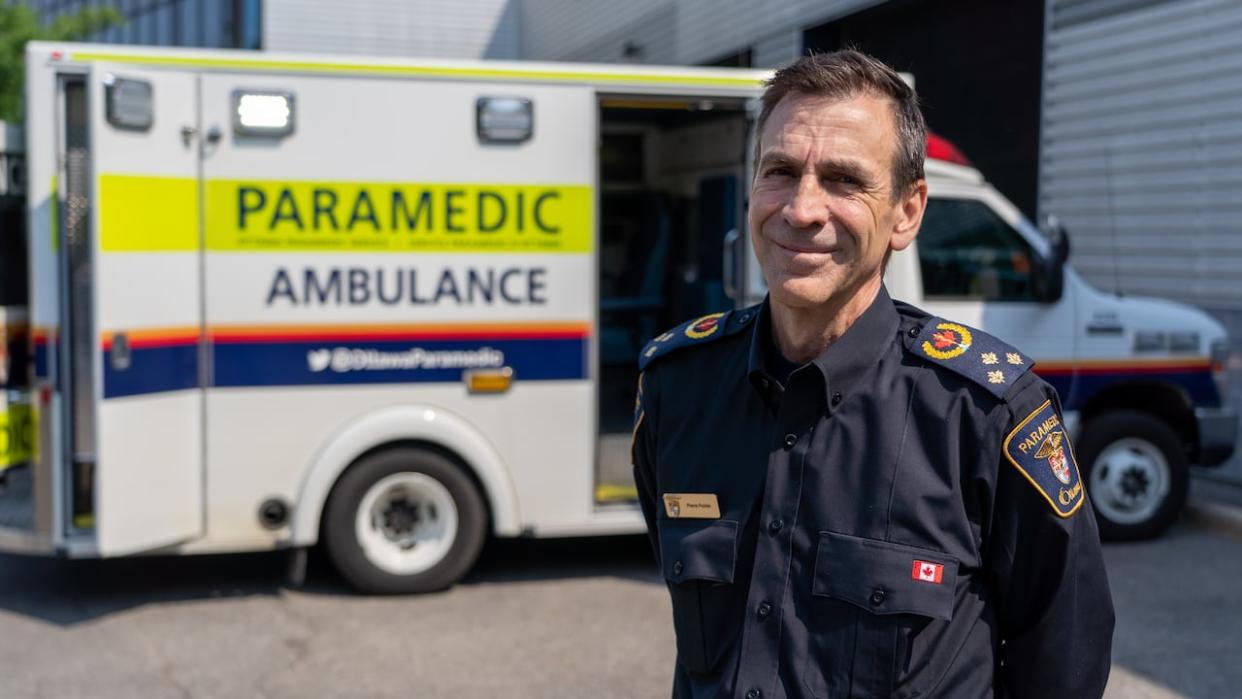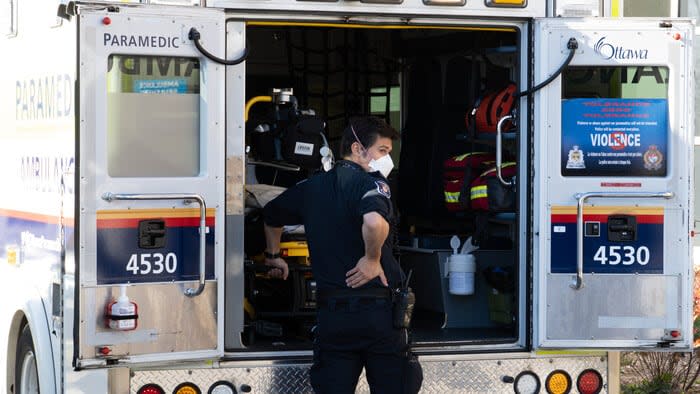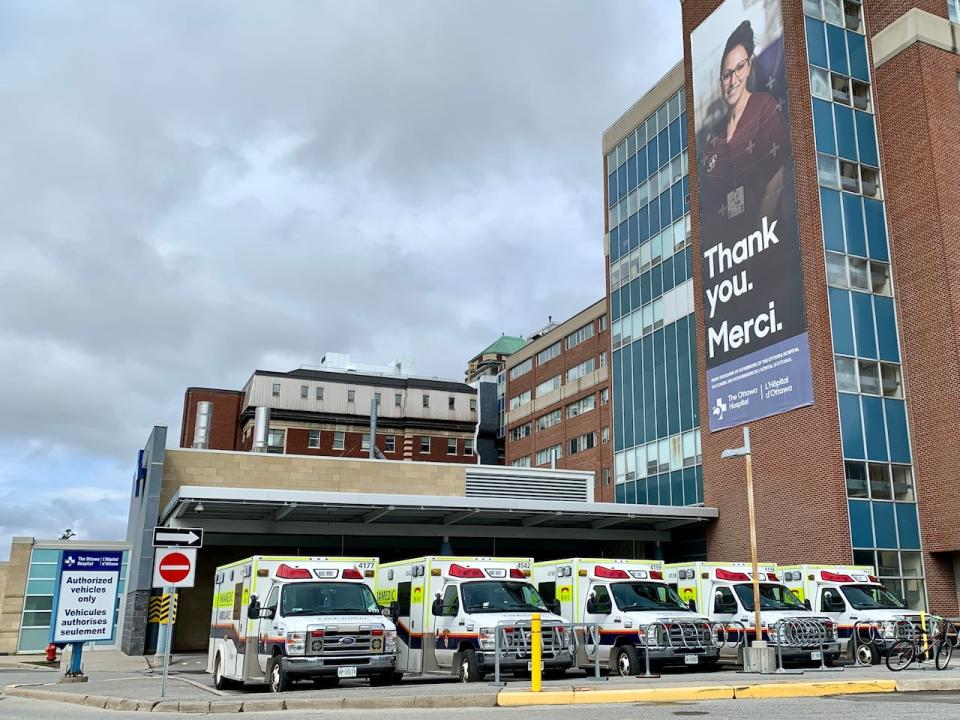This ambulance dispatch system was recommended 20 years ago. It's finally coming online

Ambulance dispatchers in Ottawa will soon have a new tool to more accurately triage calls and get to the highest priority patients much faster.
The "medical priority dispatch system" (MPDS) has been on the city's wishlist since amalgamation, and it's been 20 years since a coroner's inquest into the death of Alice Martin recommended it be installed immediately.
Ottawa paramedic Chief Pierre Poirier told members of the emergency preparedness and protective services committee Thursday that the system will finally be up and running on April 10.
"It should be seamless, without any hiccups or anything in terms of our ability to provide service to the community," he said, beaming ear to ear.
The delay comes down to the fact that only the Ontario Ministry of Health can approve the changeover, which has adopted a go-slow approach to expansion outside Toronto.
The province started with a five-year pilot project in the Niagara region, before it decided to accelerate the rollout in 2017 by adding Mississauga, Kenora and Thunder Bay to the list.
"There was a fair bit of negotiation to ensure that the city of Ottawa was next on the list, because initially we were still three or four years down the road," Poirier said, being careful not to directly criticize the provincial government.

The current paramedic dispatch service categorizes calls in only two levels, with 77 per cent given the highest priority. The new system will use five coloured levels with only two per cent considered top priority. (City of Ottawa)
'Blunt instrument'
The old system, Poirier said, is a "blunt instrument" which overprioritizes the majority of calls.
He says the system gives 77 per cent of calls the highest priority, even though paramedics in the field would peg the number closer to 10 to 15 per cent.
The new system will use five levels instead of two, with the most serious "code purple" expected to make up just two per cent of calls.
Poirier made mention Thursday of Martin's "disturbing" case, where an ambulance on its way to see her was diverted to a call that "appeared to be as severe," but was not.
The 75-year-old was having a heart attack and struggling to breathe at the time.
"I'm not saying that [MPDS] would have changed the outcome in that event," Poirier said Thursday. "But it may have."
Less severe calls may see longer waits
Dispatchers have undergone 100 hours of training on the new system, which requires them to ask more detailed questions.
When someone is not breathing, an ambulance will be dispatched right away.
In other cases, callers should expect to be on the phone for longer.
"The important piece for us to communicate back to the community is that non-life-threatening calls may wait longer, and that is going to be our challenge," Poirier said.
"This may occur because we're holding a resource, so that we can get to that 911 call where somebody has said someone's in cardiac arrest."

Ottawa has been facing an unprecedented number of “level zeros,” where there are no ambulances available to respond to emergencies. The new dispatch system won't be enough to change that, officials say. (Jean Delisle/Radio-Canada)
From now until the new system's launch, the paramedic service will be reaching out to better prepare frequent callers, like long-term care homes and retirement homes.
Poirier said he plans to come back in the spring with new target timelines, which will require community input. He used the example of a broken finger, saying residents might be willing to wait 30 minutes longer — but not four hours.
"It's sensitive because when somebody calls 911, it is an emergency for that individual."
Ambulance shortages could still happen
Councillors were pleased to hear about the change, and wondered whether this would mean fewer "level zero" instances where no ambulances are available to answer a call.
Kim Ayotte, Ottawa's general manager of emergency services, said the two issues are separate.
This new dispatch system will allow resources to be handled more effectively, he said, but it won't address the largest contributing factor for "level zero" events: ambulance offloading times.
"If ambulances don't improve on their offload delays, all of our ambulances may be at the hospital and, therefore, this won't help," Ayotte said.
"But at least, here, the city is doing what it can to best manage, and mitigate, and modify, and adapt, when faced with ... challenges outside our control."

Several Ottawa ambulances park at the emergency department of the Civic campus of The Ottawa Hospital in May 2022. The city says speeding up the offloading of patients will require provincial help. (Kate Porter/CBC)


